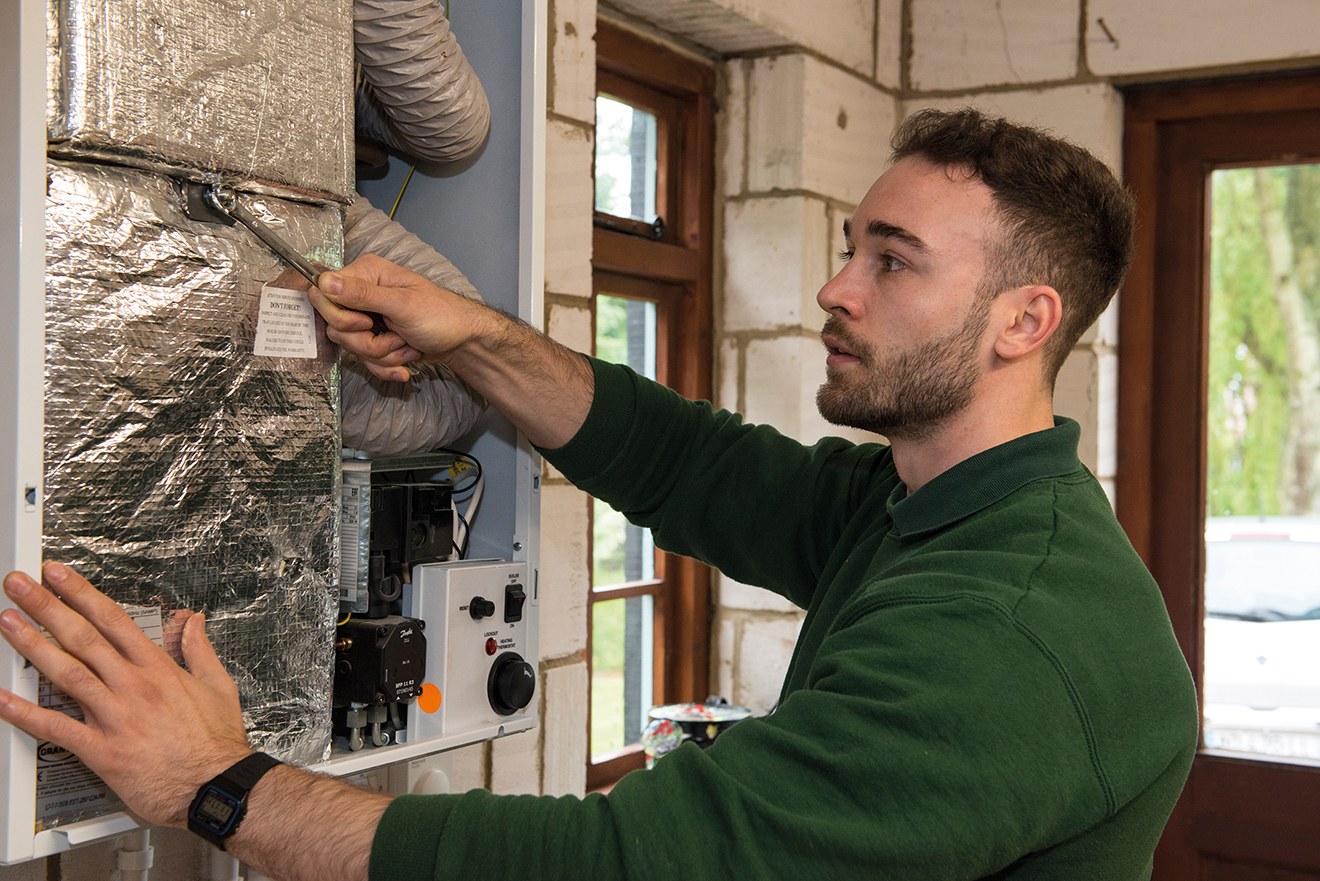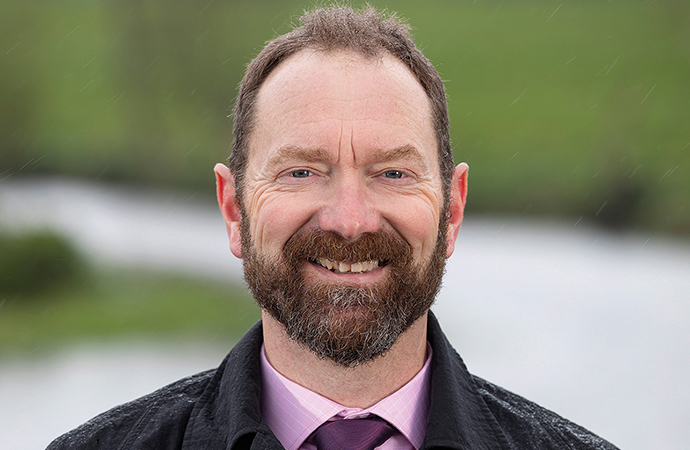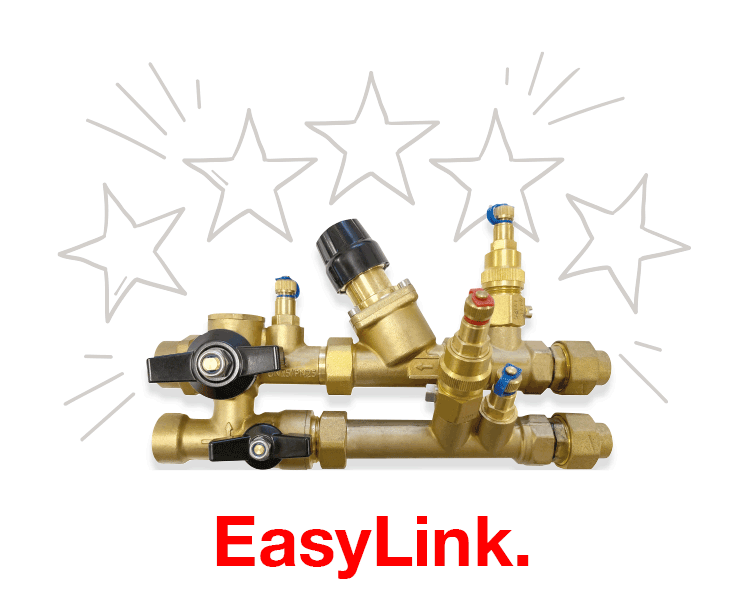As we begin a new year, 2021 has the potential to be one of the most significant in generations for Northern Ireland.
By mid 2021 we expect, Economy Minister, Diane Dodds to bring forward an options paper for the Northern Ireland Energy Strategy 2050. Last month in GB, Boris Johnson revealed his 10-point plan towards meeting net zero carbon emissions by 2050, including the target of installing 600,000 heat pumps every year by 2028 as part of the decarbonisation of home heating. Whether this is achievable or not remains to be seen.
OFTEC is currently lobbying hard for any decision to be technology neutral. In other words, consumers must be given a choice rather than have a solution that does not meet their needs imposed upon them.
OFTEC is wholly supportive of the need to decarbonise but we know that cost is likely to be a key factor in winning consumer support for the changes that are needed. We believe that due to the relatively low thermal efficiency of our housing stock and the rural nature of our dwellings that heat pumps are not the panacea to our carbon reduction dilemma. (70% of bungalows, 44% of terraces, 50% of SDV and 53% of detached houses in Northern Ireland are SAP band D-F and in OFTEC’s opinion, not readily suitable for air source heat pumps without significant cost and disruption).
Homes that use heat pumps need to be well insulated to ensure comfort and to avoid high running costs. The government has estimated that bringing EPC Band E homes, heated by liquid fuel, up to an acceptable Band C, would cost on average £12,300. For properties in EPC Bands F or G, the cost would be £18,900. The average installation cost of an air source heat pump would add approximately an additional £11,000. The liquid fuel sector is ready to introduce a renewable liquid fuel to replace heating oil. Most boilers can be made biofuel compatible and hydrotreated vegetable oil (HVO) offers an immediate 90% reduction in carbon dioxide equivalent emissions.
This option could deliver rapid progress towards decarbonisation if supported though appropriate policies, potentially saving rural households and the government millions of pounds. We are encouraged that this opportunity has been discussed at the Heat Strategy Group (a mixture of local academics, energy sector representatives and civil servants) who are responsible for influencing an energy options paper that will be presented to Minister Dodds.
Consumers need to be offered the opportunity to choose the solution that best suits them and their property. With such high costs involved to upgrade insulation and install a new heating system it is unlikely the government will be able to fully support them through grants, which leaves home-owners with a considerable cost to meet.
Renewable liquid fuels offer a low carbon solution for existing oil heated homes and for most, this will be a much more affordable and easier way to reduce their carbon footprint.
Trials in homes across Europe, alongside UK industry testing, show that a second-generation renewable liquid fuel called Hydrotreated Vegetable Oil (HVO) offers a near drop-in replacement for heating oil at a fraction of the cost of installing an air source heat pump.
Crucially, this fossil free, sustainable liquid fuel has the potential to deliver the highest carbon reduction levels of all other low carbon heating technologies currently available.
HVO is already available in the UK and global supply is increasing fast. With the right policy support, UK industry could scale up domestic production and deployment to meet the heating requirements of rural homes well within the net zero timeframes.”
OFTEC’s aim is to enable all existing oil heating users to convert to a 100% sustainable fossil-free liquid fuel by 2037, well ahead of governments’ 2050 decarbonisation targets.”
You can see how OFTEC plan to decarbonise liquid fuelled homes in NI at; www.oftec.org/future-heating/making-the-switch-to-hvo-in-northern-ireland

Enjoy the peace of mind of working with an OFTEC technician brings
When it comes to the installation of new and replacement home heating equipment, it is important that homeowners are aware of the legal requirements to be compliant with Building Regulations.
This is an area where registered technicians can really add value as well as peace of mind for their customers.
OFTEC technicians can explain building control requirements and how a completed boiler passport or completion certificate can avoid problems down the line around warranty claims or when the property is being sold.
Incorrect installation and failure to commission is frequently the cause of a boiler failure, rather than an actual product fault which would be covered by warranty. This can be avoided by using an OFTEC registered technician to carry out the installation.
The installation of heating equipment is one area of work that must comply with building regulations and it is a legal requirement to do so, however, not all homeowners are aware of this.
It’s particularly important with heating equipment because a badly installed appliance may not work efficiently, may not be safe and could cause injury or even death.
By providing information on these issues, technicians also can develop lasting relationships with customers which brings repeat business.
David Blevings, OFTEC Ireland Manager on
T: +44 (0)28 9186 2916
Sean McBride, Ireland Representative on
T: +44 (0)7540 502 304 (NI) or +353 (0)87 241 7041 (RoI)











